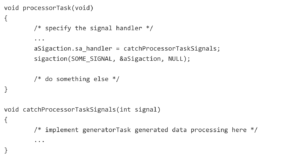Introduction
Dharma broadly refers to a universal value system. The word ‘dharma’ is derived from ‘dhr’, which means support or to sustain. Thus the meaning of the word is – that which supports. However, with time and after much evolution of this system, it now conveys a sense of duty and responsibility, which is based on virtues.
The concept of dharma comes to us from various Dharamasastras that were written by many sages at different times. Hindus do not consider these Sastras as the final and binding word on ones dharma. In fact, as these Sastras were written over a long period, each one builds on the previous ones or elaborates on one aspect of dharma or the other. These sages have always held that the society is always free to accept, modify or reject their views, which the Hindus have!
Dharma has three broad aspects:
- Aacara
- Vyavahara
- Prayaschitta
Aacara
Aacara talks about the cleanliness and purity of both body and mind in physical manner and in ceremonial manner. Without abiding by this dharma, one cannot attain abhyudaya (worldly progress) or nissreyasa (spiritual wellbeing).
Thus, there are two kinds of aacaras: sad-acara (good conduct) and dur-acara (bad conduct).
The sad-acara includes the sat-karmas (six daily rituals). These are:
- Snana & Sandhya (bath and Morning Rituals)
- Japa (chanting or repetition of Mantras or name of God)
- Homa (making offering to sacred fire)
- Devapuja (worshiping gods)
- Aatithya (taking care of the guests)
- Vaisvadeva (offering food cooked to gods)
The sad-acara also includes sodasa-samskaras (sixteen sacraments during ones life). The important ones are:
- Upanayana (the sacred thread ceremony or the yajnopavita during with the gayatri Mantra is imparted)
- Vivaha (marriage)
- Antyeshti (cremation and other rituals)
The sad-acara also includes living ones life in accordance to the varna-ashrama-dharma. The four ashrams are:
- Brahmacharya (studentship, spiritual disciplines maintaining chastity with all focus on gathering knowledge)
- Grihastha (married state of a householder)
- Vanaprastha (retirement and living with detachment as an anchorite with or without the spouse in a secluded place or ‘forest’)
- Sannyasa (renunciate living alone as a monk or nun)
The varna aspects differs as per our position, place and use in the society. Each person who belongs to one varna or the other has to abide by the duties. As a computer programmer, it is my dharma to deliver my output in accordance to expectations in terms of time, efficiency and quality!
Another Sad-acara is Tarpana. The symbolic or ceremonial offering of water with appropriate mantra to devas (gods), rishis (sages) and pitrs (souls of the ones who have died).
Vyavahara
Vyavahara refers to ones conduct. In some Dharamasastras, there is more of legal discussion on this, laying out civil and criminal laws to define ones vyavahara. There are around eighteen aspects:
- Rinadana (debts)
- Sambhuya-samutthana (partnership)
- Samvid-vyatikarma (breach of promise or contract)
- Kraya-vikraya (purchase and sale)
- Svami-pala-vivada (dispute between employer and employee)
- Simavivada (boundary disputes)
- Dandaparusya (assault)
- Vakarusya (libel)
- Steya (theft)
- Strisangrahana (abduction of women)
- Stripumdharma (relation between husband and wife)
- Vibhaga (partition)
Prayaschitta
Humans will always make mistakes. Nevertheless, one has to remedy and reform. This means one has to repent, resolve not to repeat the mistake and under go penance to get over the guilt and guilty feeling.
Thus, if one commits a paapa (sin) one has to commit prayaschitta (expiation or penance to get over the guilt and guilty feeling).
The prayaschitta depends on the paapa. The paapas are categorized into two:
- Mahapatakas
- Upapatakas
Mahapatakas include brahmahatya (killing a person of knowledge – bhramana), surapana (drinking wine and other intoxicating liquids – and given the advent modern times and a hindus right to modify specifics for oneself, I add smoking and taking intoxicating and mind/mood altering drugs to this) and incest.
Upapatakas include forsaking sacred fire, offending ones Guru (Vedic teacher, mentor), thefts, nonpayment of debts, selling prohibited articles, cutting down trees or killing harmless animals.
Prayaschitta include tapas (austerities) like fasting, japa) chanting or repetition of Mantras or name of God), daana (giving away gifts, charity or donations), pilgrimage, etc.
The philosophy in brief
The Dharamasastras recognize the importance of physical wellbeing. Our health, strength and energy are important for any achievement in life. Thus, they advise us to stay in best of health.
Equal importance is given to cultivations of values. These values include samanya-dharma (universal principles), self-control, decent and dignified behaviour to men and women, honesty, earn livelihood in right way, performing ones duty at work, to the family and the society, not harm others, keep environment clean and not abuse nature, study and listen to works of sages, austerity and work towards self-realization.
List of Dharamasastras
Some of these texts are believed to be as old as 450-300 BC and as latest as 1600 AD. Here is a list of some:
Dharmasutras
- Apastamba
- Ausanasa
- Baudhayana
- Gautama
- Harita
- Hiranyakesi
- Vaikhanasa
- Vasistha
- Vishnu
Smritis
- Angirasa
- Atri
- Brahaspati
- Brhat-Parasara
- Daksha
- Devala
- Gobhila
- Katyayana
- Manu
- Narada
- Parasara
- Samvarta
- Vyasa
- Yajnavalkya
- Yama
Nibandhas
- Caturvargacintamani
- Kalpataru
- Nirnayasindhu
- Smrticandrika
- Smrtikaustubha
- Smrtiratnakara
- Smrtitattva
- Viramitrodaya


